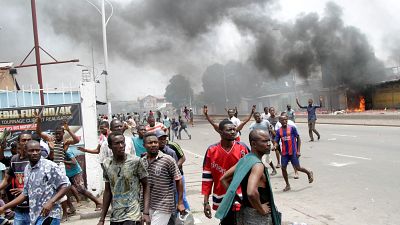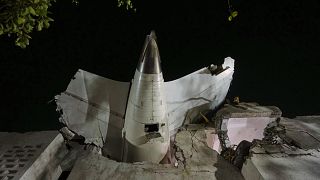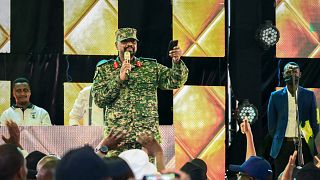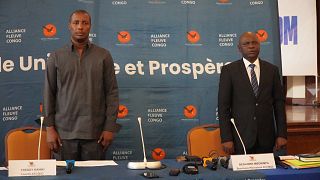Democratic Republic Of Congo
In Burundi a crisis erupted in May 2015 when President Pierre Nkurunziza decided to run for a third term. More than 400 protesters were killed and 6 independent media outlets were shut down. Currently about 80 journalists are in exile, mostly in Rwanda, and local press is controlled by the Government.
Marie Soleil Frere, Vice-Rector at Université Libre de Bruxelles, says the situation used to be very different.
She said: “The situation in Burundi used to be different because most of these independent registrations that were closed in May 2015 were radios that were established with the support of the international community and they were established with the aim of contributing to peace building, reconciliation, so there was a real pluralism inside of those media they would employ Hutu and Tutsi journalists and they would devote a lot of broadcasting time to programs about peace building and reconciliation.”
Rugurika says journalist are being killed in Burundi, “in Burundi there is no independent media.” #CarlosCardosoMemorialLecture #sabcnews
— Neo Motloung (@NeoMotloung_) November 8, 2016
In the Democratic Republic of Congo independent media struggle with journalists often being threatened, attacked or arrested.
Recently, international media have also been targeted. In November 2016 Radio France International’s frequencies were suspended. A new law making foreign media enter into partnerships with local firms was enforced.
Happening now.. #Congo DRC: popular NRTC (National Radio and Television of Congo) broadcast journalist shot dead in Central Congo.. pic.twitter.com/bx8e5H0N3n
— Barmou A. Salifou (@BarmouSalif) November 16, 2016
Ernest Sagaga, from the International Federation of Journalists, believes the law aims to bring money and false credibility to the government: “They are now targeting international media broadcasters because of course they come with great credibility,” Sagaga said. “These countries whatever they do – both Burundi and DRC- they need money to run the economies and they want to come back to their funders including the EU for the kind of assistance they get. So, there is a dichotomy if you like: on one hand they don’t want people to know what is going on in the country and on the other hand they want help or support allegedly for running the affairs of their countries.”
Neutrality, trustworthiness and independence are cornerstones to delivering reliable news reports. But according to INFOCORE’s findings, Journalism could go beyond the simple reporting of facts in conflict zones.
No better room could have been chosen for a conference on #conflict, #violence, and #media. #infocore #research #war pic.twitter.com/CwBEnKt4i8
— Infocore (@InfocoreFP7) November 16, 2016
“We can find three main kinds of journalist” – Rosa Berganza from University Rey Juan Carlos in Madrid explains, “the responsible one who promotes peace and who is looking for solutions, the peace-maker journalist who specifically proposes solutions, and the watchdog role that is played by several journalists, in order to account for all the violations of human rights that can be committed in different countries.”












02:02
Funeral held for Kenyan blogger whose death in police custody sparked violent protests
01:00
Pix of the Day: July 3, 2025
01:08
DRC extends ban on cobalt export for another three months
01:34
Police officers accused of shooting Nairobi hawker remanded in custody for 15 days
Go to video
US resumes visas for foreign students but demands access to social media accounts
01:57
Father of shooting victim calls for Kenyan police to be held accountable